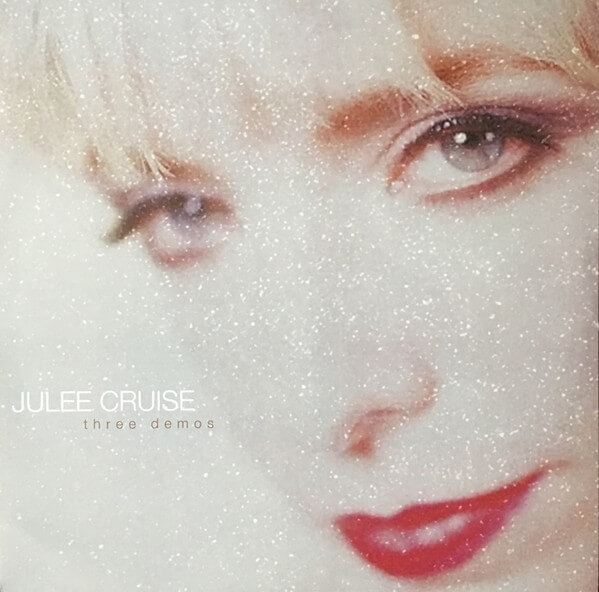Honoring Julee Cruise, the voice of light in David Lynch's darkness
The singer, who passed away June 9 at 65, was best known for her performances on Twin Peaks, where she channeled the complexity of Laura Palmer's tragic plight

Singer Julee Cruise, best known for her collaborations with director David Lynch, but who also who served as a touring member of the B-52s and Cindy Wilson’s stand-in for a considerable stretch in the mid-1990s, passed away June 9 at the age of 65, her husband Edward Grinnan shared in a social media post. For fans of Twin Peaks, this news was uniquely saddening, the terminal transition of an angelic-voiced performer whose work served as a transportive vessel to so many. When Lynch talks rhapsodically of getting lost in a world, it is Cruise’s musical collaborations with the filmmaker and composer Angelo Badalamenti which represent the fullest, most poignant realization of some of those realms.
“Ethereal” is the predictable (and entirely appropriate) word which will appear in virtually all remembrances of Cruise. But it doesn’t do her full justice. At a time when so many other female pop vocals were built around conspicuous displays of powerhouse range, Cruise’s unique, elongated phrasing of spare lyrics was singular, and often emotionally shattering.
Five tracks from Cruise’s richly atmospheric 1989 debut, Floating Into the Night, with music composed by Badalamenti and songs penned by Lynch, would show up on Twin Peaks. The instrumentation of these songs, with narcoleptic reverb and shimmery piano and synthesizer, evoked a certain bygone era, but in their own prismatic manner also conjured an entirely different world, creased yet alluring, swollen with melancholic feeling.
“Falling,” the vocal version of the Grammy Award-winning Twin Peaks theme, communicated the tragically extinguished innocence of its murdered homecoming queen Laura Palmer, and was undoubtedly Cruise’s most famous song. But it was by no means the only showcase example of her wonderful voice.
Pleasant toe-tapper “Rockin’ Back Inside My Heart,” the album’s second single, is a dream pop gem. “Into the Night,” with its simple yet gripping spoken-word introduction of “Now it’s dark,” tells the story of a relationship’s dissolution in a way which blends piercing emotionality with a sense of lingering, unknown menace. The sweet, utterly heartbreaking “The Nightingale” tells the story of a completing, soul-match love (“The nightingale / Said he knew / That your love / Would find my love one day”), with Cruise’s mesmerizing vocal breathing full life into the sad subtext that for some it may not happen in this lifetime.
Then there’s “The World Spins,” used to devastating effect in “Lonely Souls,” the second season episode of Twin Peaks which reveals Laura’s killer. As Lynch and editor Mary Sweeney intercut between a shocking murder and Cruise performing on stage at a bar setting, where characters are intuitively responding to the parallel tragedy unfolding at another location, the song is a yearning entreaty for love’s return, integral to one of the most jointly unnerving and moving sequences of episodic television of all time.
For an entire generation (and now several more) of attuned pop culture connoisseurs, Cruise’s songs served as perhaps the most searingly effective modern example of the expansive nature of a TV or film soundtrack—not just using or commissioning a number by a popular artist to toss on top of a well-crafted montage, and not even merely contributing heartily to mood (though her songs certainly did that). Instead, Cruise’s efforts extended beyond the distinct borders of these works of entertainment. They birthed worlds.
Lynch’s use of these songs was often masterful, but the essence of Cruise—her haunting voice, her enthralling indulgence of fragility and vulnerability, the projection of sensitive spirit—is palpable in her performances. She was an important, fully-vested partner in Lynch’s experiments in structural meta-textuality.
Born and raised in small-town Iowa, Cruise first connected with Lynch on 1986’s Blue Velvet. Famously unable to afford the rights to This Mortal Coil’s “Song to the Siren,” the director yielded to Badalamenti’s suggestion that the pair compose their own song in a similar vein. The result was “Mysteries of Love,” for which Badalamenti recruited Cruise, with whom he had worked in a New York theater workshop production.
The collaboration was so enjoyable and fruitful that the pair went on to write more songs, which would comprise Floating Into The Night and 1993’s wildly underrated The Voice Of Love, Cruise’s second album. Some of these efforts popped up in other Lynch projects, too. “Up in Flames” appeared in the avant-garde concert piece Industrial Symphony No. 1; an instrumental version of “Kool Kat Walk” appeared in Wild At Heart; and instrumental versions of the title track and “She Would Die For Love” would appear in 1992’s Twin Peaks: Fire Walk With Me.
The standout track from The Voice Of Love, though, also featured in Fire Walk With Me, has to be “Questions in a World of Blue,” a plaintive lamentation of the too-short shelf-life of love and all that is right in the world. In it, Cruise asks, “When all the world seemed to sing / Why, why did you go?” It’s a question which currently hangs heavy in the hearts of many, who mourn her passing but reflect on all the beauty she left in the world by way of her songs.